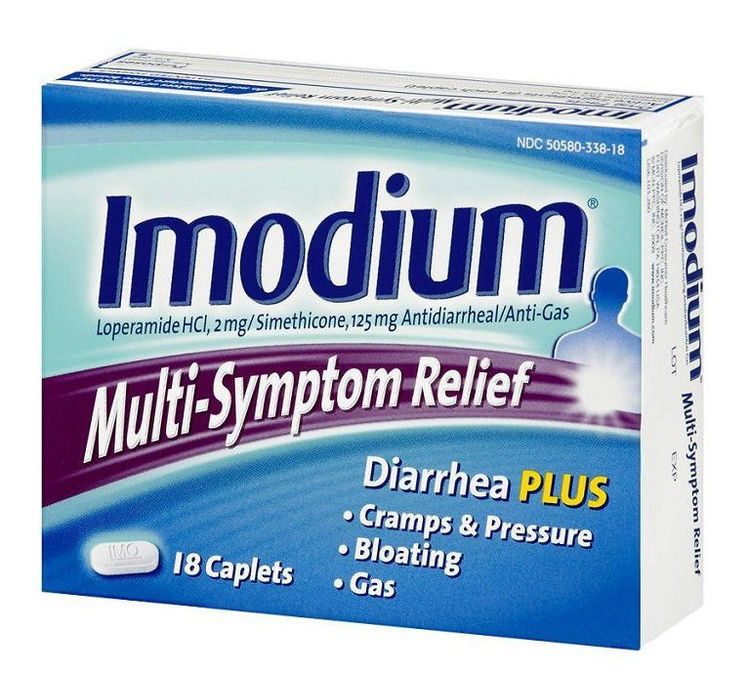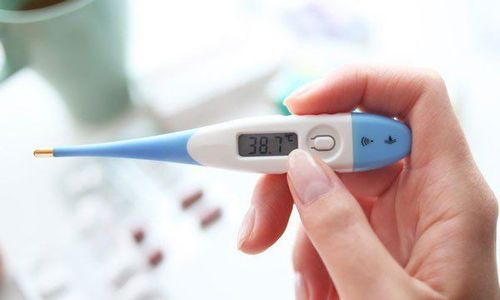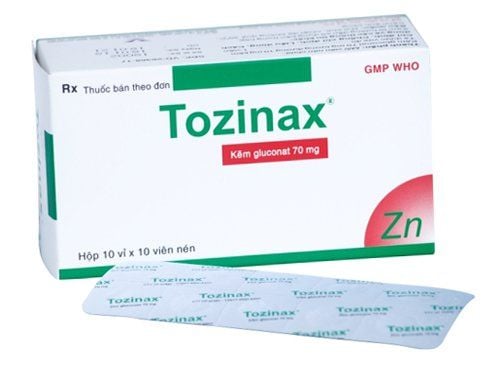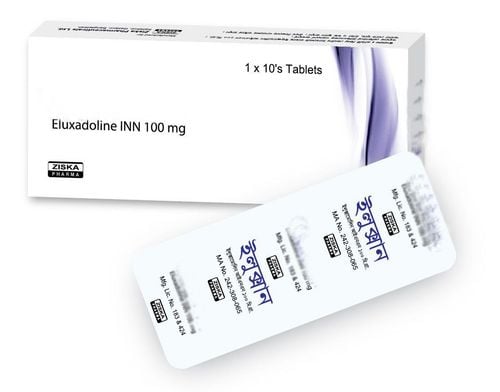This is an automatically translated article.
Imodium medicine contains the active ingredient loperamide hydrochloride 2mg, indicated in the treatment of acute diarrhea in adults and children 12 years of age and older, diarrhea associated with irritable bowel syndrome... Learn about the uses and dosage of imodium through the article below.
1. Uses of the drug Imodium
1.1. Indications "What are the effects of imodium?" . Imodium medicine contains the active ingredient loperamide hydrochloride 2mg, which is indicated in the treatment of the following conditions:
Acute diarrhea in children 12 years of age and older and adults; Acute diarrhea associated with irritable bowel syndrome in people 18 years of age and older has been diagnosed by a physician. 1.2. Pharmacodynamics Loperamide hydrochloride 2mg belongs to the group of drugs that inhibit intestinal motility. The drug works by binding to oplat receptors in the gastrointestinal tract wall, thereby reducing peristalsis, increasing the absorption of water and electrolytes and prolonging the circulation time in the intestine. Loperamide increases anal muscle tone, helping to reduce urgency and incontinence.
A study performed in 56 patients with acute diarrhea treated with Loperamide showed an onset of antidiarrheal effect within 1 hour after a dose of 4 mg. Clinical comparisons of antidiarrheal agents have shown that loperamide has a rapid onset of action.
1.3. Pharmacokinetics Absorption: Loperamide after oral administration is largely absorbed from the intestine, however, as a result of first-pass metabolism, bioavailability is only about 0.3%. Distribution: Loperamide has a high affinity for the intestinal wall, and a very high rate of binding to the receptor in the longitudinal muscle layer. The drug's plasma protein binding is about 95% (mainly albumin). Clinical data suggest that loperamide is a substrate of P-glycoprotein. Metabolism: Loperamide is metabolised in the liver almost completely to the conjugate form, then excreted in the bile. Metabolism is redox-demethylated at the N site, via the enzymes CYP3A4, CYP2C8. Because of the extensive initial metabolism, plasma concentrations of the unchanged drug are extremely low. Elimination: The half-life of the drug is 11 hours (range 9-14 hours). Excretion of the drug in unchanged form and in the faeces.

Thuốc imodium được dùng trong tiêu chảy cấp tính ở người lớn và trẻ em
2. Dosage of Imodium
"What disease does Imodium treat and how to use it?". Accordingly, the dose of Imodium drug depends on the age and condition of the patient, specifically as follows:
Acute diarrhea: For adults and children 12 years of age and older, the starting dose is 4mg, after Then use a maintenance dose of 2mg after each loose stool. The usual dose is 3 – 4 capsules (6mg – 8mg) per day. Note that the daily dose should not exceed 6 capsules (12mg).
Acute diarrhea associated with irritable bowel syndrome in people 18 years of age and older:
Initial dose is 4mg, then maintain a dose of 2mg after each loose stool or as directed by the doctor. Note that the maximum daily dose does not exceed 12 mg/day; Elderly people do not need to adjust the dose; Patients with renal failure do not need to adjust the dose; People with liver failure need to be careful when using Imodium in the treatment of diarrhea.
3. Contraindications to the use of the drug Imodium
Contraindicated to use Imodium drug in the following cases:
People who are sensitive to loperamide hydrchorid or to any component of Imodium drug; Children under 12 years old; People with acute dysentery with bloody stools and high fever; Patients with acute ulcerative colitis; Patients with enteritis caused by infection by bacteria including Shigella, Salmonella, Campylobacter; Patients with pseudomembranous colitis caused by taking broad-spectrum antibiotics; Imodium should not be used when it is necessary to avoid inhibiting intestinal motility because of the risk of serious complications such as colonic enlargement, intestinal obstruction, toxic megacolon. Stop taking Imodium when symptoms of constipation, intestinal obstruction, abdominal distension appear.

Thuốc imodium chống chỉ định với người bệnh viêm loét đại tràng cấp
4. Notes when using the drug Imodium
4.1. Undesirable effects Some unwanted effects when using Imodium 2mg are as follows:
Common side effects (frequency > 1%): Flatulence, constipation, headache and nausea. Uncommon side effects: Dizziness, somnolence, abdominal discomfort, abdominal pain, dry mouth, upper abdominal pain, indigestion, itching. Uncommon side effects: Hypersensitivity reactions, anaphylactoid reactions (anaphylaxis), loss of consciousness, stupor, decreased consciousness, increased muscle tone, motor coordination abnormalities, miosis, intestinal obstruction , colonic enlargement, abdominal distention, blistering, urticaria, angioedema, urinary retention, pruritus, angioedema. 4.2. Note that when using the drug Imodium only treats the symptoms, not the cause of the disease. Therefore, it is necessary to have appropriate treatment when the patient determines the cause of diarrhea. The priority therapy in the treatment of acute diarrhea is to prevent dehydration and to replace lost fluids and electrolytes (especially important in children and the elderly, infirm patients). The use of Imodium does not interfere with the treatment of rehydration and electrolyte therapy.
Imodium should not be treated in patients with persistent diarrhea, because prolonged diarrhea can be a sign of some dangerous diseases. In patients with acute diarrhea, if the clinical symptoms do not improve after 48 hours, the patient should not continue using Imodium, instead consult the treating physician.
Patients with AIDS when treated for diarrhea with Imodium should stop using the drug when there are early symptoms of abdominal distension. Because there have been some cases of constipation with an increased risk of toxic megacolon in AIDS patients with bacterial and viral infectious colitis.
Patients with hereditary galactose intolerance, Lapp lactase deficiency are not treated with Imodium because the drug contains lactose.
4.3. Special Warnings Imodium should only be used to treat acute diarrhea associated with irritable bowel syndrome if IBS has been previously diagnosed by the treating physician.
Do not use Imodium in treatment if there is one of the following signs:
The patient is 40 years old or older and has not had irritable bowel syndrome for a long time; Patients aged 40 years or older and symptoms of irritable bowel syndrome at times are different; Bloody stools; Severe constipation; Symptoms of illness with vomiting; Feeling of weight loss, decreased appetite; Painful or difficult urination; Fever symptoms.

Người bệnh có biểu hiện sốt không nên dùng thuốc imodium
5. Drug interactions
The drug Imodium 2mg may cause some drug interactions as follows:
Concomitant use of Imodium and quinidine or ritonavir increases the plasma concentration of loperamide 2 to 3 times. Because both drugs inhibit P-glycoprotein, the pharmacokinetic interaction has not been well studied. Concomitant use of Imodium and itraconazole increases the plasma concentration of loperamide by 3-4 times. Concomitant administration of oral desmopressin with Imodium resulted in a 3-fold increase in desmopressin concentrations. Gastrointestinal agents that reduce the effect of imodium and drugs with similar pharmacological effects may affect its action. Imodium medicine contains the active ingredient loperamide hydrochloride 2mg, indicated in the treatment of acute diarrhea in adults and children 12 years of age and older, diarrhea associated with irritable bowel syndrome. To ensure the effectiveness of treatment and avoid side effects, patients need to use prescription drugs or consult a doctor or pharmacist for advice.
Follow Vinmec International General Hospital website to get more health, nutrition and beauty information to protect the health of yourself and your loved ones in your family.
Please dial HOTLINE for more information or register for an appointment HERE. Download MyVinmec app to make appointments faster and to manage your bookings easily.













